Department of Economics & Management Sciences
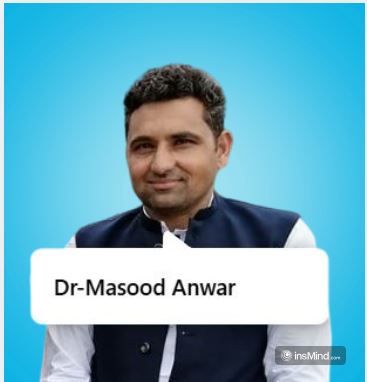
Department Introduction
The Department of Economics & Management Sciences is the first ever department for the Women in Women University of Azad Jammu and Kashmir located in Bagh, AJ&K, Pakistan. The Department of Economics was established in 2014 in response to the growing needs for Economic knowledge in the State of Azad Jammu and Kashmir.
At the Department of Economics and Management Sciences, we are dedicated to exploring the dynamic intersections between economic theory, business practices, and strategic decision-making. Our department offers a robust array of programs designed to equip students with the knowledge and skills necessary to excel in today’s complex and ever-evolving global economy.
Vision
Mission
Objectives
-
Academic Excellence: Deliver high-quality education through a rigorous and up-to-date curriculum that equips students with a strong theoretical foundation and practical skills in economics and management.
-
Innovative Research: Foster cutting-edge research that addresses significant economic and business issues, contributes to the academic community, and informs policy and practice.
-
Student Development: Support student growth through comprehensive career services, internships, and real-world projects, ensuring they are well-prepared for diverse professional opportunities.
-
Industry Collaboration: Build and maintain strong partnerships with industry leaders and organizations to enhance educational programs, provide experiential learning opportunities, and stay aligned with industry trends.
-
Ethical Leadership: Promote principles of ethical decision-making and social responsibility, ensuring that graduates lead with integrity and contribute positively to their organizations and communities.
-
Global Perspective: Equip students with a global perspective on economic and management practices, preparing them to navigate and impact international markets and multicultural environments effectively.
-
Community Engagement: Engage with the local and global community through outreach programs, public seminars, and consulting services that leverage our expertise to address real-world challenges.
-
Faculty Development: Support faculty in their professional growth and research endeavors, encouraging continuous learning, interdisciplinary collaboration, and contributions to the academic field.
Programs Offered
M.Phil Economics
▼Program Introduction
An M.Phil in Economics is a specialized postgraduate program that offers a deep dive into economic theories, methodologies, and research techniques. Designed for those seeking advanced knowledge and research skills, the program typically combines rigorous coursework in microeconomics, macroeconomics, and econometrics with a significant research component culminating in a dissertation. This degree not only equips students with a comprehensive understanding of economic concepts but also prepares them for further academic pursuits, such as a Ph.D., or for careers in research institutions, policy analysis, and high-level economic consultancy.
Vision
The vision of an M.Phil in Economics program is to cultivate a new generation of economists who are not only adept at applying advanced economic theories and quantitative methods but also capable of driving innovative research and contributing meaningfully to economic policy and analysis. By fostering a rigorous academic environment and encouraging original research, the program aims to produce graduates who can address complex economic challenges, influence policy decisions, and advance the frontiers of economic knowledge, ultimately shaping a more informed and equitable global economic landscape.
Mission
Type HereThe mission of an M.Phil in Economics program is to provide a rigorous and comprehensive education that equips students with advanced analytical skills, a deep understanding of economic theories, and the ability to conduct high-quality research. By integrating theoretical knowledge with practical research experience, the program aims to develop critical thinkers who can tackle complex economic issues, contribute to scholarly discourse, and influence policy and practice in various sectors. The program is committed to fostering intellectual curiosity, ethical scholarship, and a commitment to advancing the field of economics through innovative and impactful research.
Eligibility Criteria
-
The eligibility for admission in the first semester of MPhil Economics program is BS/MA/MSc or any other recognized program with 16 years of schooling with any major.
-
Shall not have 3rd division in last degree obtained.
-
Aptitude Test / interview of Department of Economics & Management Sciences to be counted towards cumulative merit.
Courses Offered
| Course Code | Course Title | Credit Hours | |
|---|---|---|---|
| Semester- 0 | |||
| ECO-7101 | Advance Macroeconomics(comp) | 3(3+0) | |
| ECO-7102 | Research Methodology(comp) | 3(3+0) | |
| ECO-7103 | Advance Monetary Economics | 3(3+0) | |
| ECO-7104 | International Economics | 3(3+0) | |
| ECO-7105 | Advance Microeconomics(comp) | 3(3+0) | |
| ECO-7106 | Applied Econometrics(comp) | 3(3+0) | |
| ECO-7107 | Topics in Labor Economics | 3(3+0) | |
| ECO-7108 | The Economics of Climate Change | 3(3+0) | |
| Semester- 3 | |||
| ECO-7109 | Thesis | 6(6+0) | |
BBA
▼Program Introduction
The BBA program is structured to equip future managers with the basic tools and techniques of business management. The main features of the BBA curriculum include greater exposure of students to courses in the areas of humanities and social sciences (which is in line with the global trends at the undergrad level), enhanced flexibility in the choice of courses and a wide pool of business electives. Moreover, new core courses have been introduced to familiarize students with the role of technology in business and society in general, that equip students with an enhanced skill set for better decision making and analysis.
Vision
The BBA program is exclusive in its own right. It is focused on the theoretical and practical aspects of the coursework and offers invaluable learning opportunities through class projects, field assignments and strong linkages with the industry. BBA program incorporates constant updates in the curriculum considering growing needs of the industry and equip students to take on leadership roles in public and private sector organizations. Students are required to undergo an internship of 4 to 8 weeks in the final year. We strive to broaden the intellect and knowledge base of students by exposing them to diverse subjects.
Mission
Our mission is to equip women with concrete concepts of business by generating and transmitting knowledge through experiential learning in order to develop skills, ethics, and attitudes essential for the management of organizations in a fast-paced world.
Eligibility Criteria
- Candidate should have 12 years of education (F.A/F. Sc. /I. Com and ICS or equivalent) with at least 2nd division (45%).
- Age of the candidate should not be more than 20 years (The age restriction will not be valid if the number of applicants is less than the available seats).
- The merit for admission in BBA will be determined by the following formula.
- Merit Formula = (25% SSC Marks + 25% HSSC Mark+ 50% Test/Interview)
Courses Offered
| Course Code | Course Title | Credit Hours | |
|---|---|---|---|
| Semester- 1 | |||
| ENG-5101 | Functional English | 3(3+0) | |
| MAT-5102 | Quantitative Reasoning I | 3(3+0) | |
| NS-5103 | Natural Sciences | 3(3+0) | |
| ISL-5104 | Islamic Studies | 2(2+0) | |
| MGT-5105 | Introduction to Business (FC) | 3(3+0) | |
| MGT -5106 | Principles of Management (FC) | 3(3+0) | |
| Semester- 2 | |||
| MAT-5201 | Quantitative Reasoning II | 3(3+0) | |
| ENG-5202 | Expository Writing | 3(3+0) | |
| SS-5203 | Social Sciences | 2(2+0) | |
| ICP-5204 | Ideology and Constitution of Pakistan | 2(2+0) | |
| ACC-5205 | Financial Accounting, I (FC) | 3(3+0) | |
| MKT-5206 | Principles of Marketing (FC) | 3(3+0) | |
| Semester- 3 | |||
| HUM-5301 | Arts and Humanities | 2(2+0) | |
| CIV-5302 | Civics and Community Engagement | 2(2+0) | |
| MGT -5303 | Business communication and Report Writing (MC) | 3(3+0) | |
| MGT -5304 | Human Resource Management (FC) | 3(3+0) | |
| ACC-5305 | Financial Accounting II (MC) | 3(3+0) | |
| ECO-5306 | Economic Theory and Practices | 3(3+0) | |
| Semester- 4 | |||
| MGT-5401 | Entrepreneurship | 2(2+0) | |
| ICT-5402 | Applications of Information and Communication Technologies (ICT) | 3(3+0) | |
| ACC-5403 | Cost Accounting (MC) | 3(3+0) | |
| FIN-5404 | Introduction to Business Finance (FC) | 3(3+0) | |
| MGT -5405 | Organizational Behavior (MC) | 3(3+0) | |
| XXX-5406 | Statistics for Business | 3(3+0) | |
| Semester- 5 | |||
| FIN-6101 | Financial Management (MC) | 3(3+0) | |
| MKT-6102 | Marketing Management (MC) | 3(3+0) | |
| MGT -6103 | Digital Marketing and E commerce (MC) | 3(3+0) | |
| MGT -6104 | International Business (MC) | 3(3+0) | |
| XXX-6105 | Specialization -I | 3(3+0) | |
| CS-6106 | Management Information System | 3(3+0) | |
| Semester- 6 | |||
| MGT -6201 | Corporate Governance (MC) | 3(3+0) | |
| FIN-6202 | Financial institutions and markets (MC) | 3(3+0) | |
| MGT -6203 | Business Research Methods (MC) | 3(3+0) | |
| MGT -6204 | Project Management (MC) | 3(3+0) | |
| XXX-6205 | Specialization -II | 3(3+0) | |
| CS-6206 | Artificial Intelligence for Business | 3(3+0) | |
| INT-6207 | Internship (summer) | 3(3+0) | |
| Semester- 7 | |||
| MGT -6301 | Supply Chain Management (MC) | 3(3+0) | |
| XXX-6303 | Specialization -III | 3(3+0) | |
| XXX-6304 | Specialization -IV | 3(3+0) | |
| FIN-6402 | Forecasting and budgeting (MC) | 3(3+0) | |
| Semester- 8 | |||
| MGT-6302 | Career management and Planning (MC) | 3(3+0) | |
| MGT -6401 | Strategic Management (MC) | 3(3+0) | |
| XXX-6403 | Specialization -V | 3(3+0) | |
| XXX-6404 | Specialization -VI | 3(3+0) | |
| FYP-6405 | Research project | 3(3+0) | |
BS Economics (Lateral Entry)
▼Program Introduction
The Bachelor of Science in Economics (BS Economics two year lateral entry program) is a comprehensive undergraduate program designed to equip students with a deep understanding of economic principles, theories, and analytical tools. This program is tailored to provide a solid foundation in economic concepts, quantitative methods, and critical thinking skills necessary for navigating the complexities of the global economy.
Vision
The scope and vision of the BS Economics two year lateral entry program is broad, covering a wide range of topics such as microeconomics, macroeconomics, econometrics, economic policy analysis, and international economics. Students will explore the intricate relationships between individuals, businesses, governments, and the global market, gaining insights into decision-making processes at various levels.
The interdisciplinary nature of economics allows students to apply their knowledge to diverse fields, including finance, public policy, international relations, environmental sustainability, and more. Graduates of the program are well positioned for careers in government agencies, financial institutions, research organizations, multinational corporations, and non-profit sectors.
Mission
The mission of the BS Economics program is to foster a dynamic learning environment that nurtures intellectual curiosity, critical thinking, and ethical awareness. We aim to provide students with a robust academic foundation in economics, enabling them to contribute meaningfully to societal challenges and opportunities.
Eligibility Criteria
Candidate should have 14 years of education (B.A/Associate degree in any discipline or equivalent) with at least 2nd division (45%).
Courses Offered
| Course Code | Course Title | Credit Hours | |
|---|---|---|---|
| Semester- 5 | |||
| ECO-6101 | Mathematical Economics | 3(3+0) | |
| ECO-6102 | Intermediate Microeconomics | 3(3+0) | |
| ECO-6103 | Islamic Banking and Finance | 3(3+0) | |
| ECO-6104 | Poverty and income inequality | 3(3+0) | |
| ECO-6105 | Monetary Economics/ Public Finance | 3(3+0) | |
| ECO-6106 | Statistics of Economics | 3(3+0) | |
| Semester- 6 | |||
| ECO-6201 | Econometrics | 3(3+0) | |
| ECO-6202 | Intermediate Macroeconomic | 3(3+0) | |
| ECO-6203 | International Economics/ Financial Economics | 3(3+0) | |
| ECO-6204 | Environmental economics | 3(3+0) | |
| ECO-6205 | Internship | 3(3+0) | |
| ECO-6206 | Pakistan Economy | 3(3+0) | |
| Semester- 7 | |||
| ECO-6301 | Research Methodology | 3(3+0) | |
| ECO-6302 | Microeconomics Analysis | 3(3+0) | |
| ECO- | Optional Course-I | 3(3+0) | |
| ECO- | Optional Course-II | 3(3+0) | |
| ECO- | Optional Course-III | 3(3+0) | |
| ECO- | Optional Course-IV | 3(3+0) | |
| Semester- 8 | |||
| ECO-6401 | Research project | 3(3+0) | |
| ECO-6402 | Macroeconomics Analysis | 3(3+0) | |
| ECO- | Optional Course-V | 3(3+0) | |
| ECO- | Optional Course-VI | 3(3+0) | |
| ECO- | Optional Course-VII | 3(3+0) | |
| ECO- | Optional Course-VIII | 3(3+0) | |
BS Economics
▼Program Introduction
The Bachelor of Science in Economics (BS Economics) is a comprehensive undergraduate program designed to equip students with a deep understanding of economic principles, theories, and analytical tools. This program is tailored to provide a solid foundation in economic concepts, quantitative methods, and critical thinking skills necessary for navigating the complexities of the global economy.
Vision
The scope and vision of the BS Economics program is broad, covering a wide range of topics such as microeconomics, macroeconomics, econometrics, economic policy analysis, and international economics. Students will explore the intricate relationships between individuals, businesses, governments, and the global market, gaining insights into decision-making processes at various levels.
The interdisciplinary nature of economics allows students to apply their knowledge to diverse fields, including finance, public policy, international relations, environmental sustainability, and more. Graduates of the program are well positioned for careers in government agencies, financial institutions, research organizations, multinational corporations, and non-profit sectors.
Mission
"The mission of the BS Economics program is to foster a dynamic learning environment that nurtures intellectual curiosity, critical thinking, and ethical awareness. We aim to provide students with a robust academic foundation in economics, enabling them to contribute meaningfully to societal challenges and opportunities.”
Eligibility Criteria
Candidate should have 12 years of education (F.A/F. Sc. /I. Com and ICS or equivalent) with at least 2nd division (45%).
Courses Offered
| Course Code | Course Title | Credit Hours | |
|---|---|---|---|
| Semester- 1 | |||
| ENG-5101 | Functional English | 3(3+0) | |
| MAT-5102 | Quantitative Reasoning I | 3(3+0) | |
| NS-5103 | Natural Sciences | 3(3+0) | |
| ISL-5104 | Islamic Studies | 2(2+0) | |
| ECO-5105 | Statistics of Economics I | 3(3+0) | |
| ECO-5106 | Principles of Microeconomics | 3(3+0) | |
| Semester- 2 | |||
| MAT-5201 | Quantitative Reasoning II | 3(3+0) | |
| ENG-5202 | Expository Writing | 3(3+0) | |
| SS-5203 | Social Sciences | 3(3+0) | |
| ICP-5204 | Ideology and Constitution of Pakistan | 2(2+0) | |
| ECO-5205 | Statistics of Economics II | 3(3+0) | |
| ECO-5206 | Principles of Macroeconomics | 3(3+0) | |
| ECO-5207 | Ethics and Universal Values | 3(3+0) | |
| Semester- 3 | |||
| HUM-5301 | Arts and Humanities | 2(2+0) | |
| CIV-5302 | Civics and Community Engagement | 2(2+0) | |
| ECO-5303 | Intermediate Microeconomics | 3(3+0) | |
| ECO-5304 | Mathematical Economics | 3(3+0) | |
| ECO-5305 | Pakistan Economy | 3(3+0) | |
| ECO-5306 | Economic Analysis in Python | 3(3+0) | |
| ECO-5307 | Economic Application in AI | 3(3+0) | |
| Semester- 4 | |||
| MGT-5401 | Entrepreneurship | 2(2+0) | |
| ICT-5402 | Applications of Information and Communication Technologies | 3(3+0) | |
| ECO-5403 | Intermediate Macroeconomics | 3(3+0) | |
| ECO-5404 | Econometrics | 3(3+0) | |
| ECO-5405 | History of Economic Thoughts | 3(3+0) | |
| ECO-5406 | Economic Data Analysis in R | 3(3+0) | |
| Semester- 5 | |||
| ECO-6101 | Advance Econometrics | 3(3+0) | |
| ECO-6102 | Microeconomic Analysis | 3(3+0) | |
| ECO-6103 | Development Economics/Economic Growth | 3(3+0) | |
| ECO-6104 | Poverty and income inequality | 3(3+0) | |
| ECO-6105 | Monetary Economics/ Public Finance | 3(3+0) | |
| Semester- 6 | |||
| ECO-6201 | Macroeconomic Analysis | 3(3+0) | |
| ECO-6202 | International Economics/ Financial Economics | 3(3+0) | |
| ECO-6203 | Environmental economics | 3(3+0) | |
| ECO-6204 | Methods and Models for Dynamic Economics | 3(3+0) | |
| ECO-6205 | Internship | 3(3+0) | |
| Semester- 7 | |||
| ECO-6301 | Research Methodology | 3(3+0) | |
| ECO-6302 | Optional Course-I | 3(3+0) | |
| ECO-6303 | Optional Course-II | 3(3+0) | |
| ECO-6304 | Optional Course-III | 3(3+0) | |
| ECO-6305 | Optional Course-IV | 3(3+0) | |
| Semester- 8 | |||
| ECO-6401 | Research project | 3(3+0) | |
| ECO-6402 | Optional Course-V | 3(3+0) | |
| ECO-6403 | Optional Course-VI | 3(3+0) | |
| ECO-6404 | Optional Course-VII | 3(3+0) | |
| ECO-6405 | Optional Course-VIII | 3(3+0) | |
Faculty

|
|
| |
|
| |
|
| |
|
| |
|
| |
|

|
|
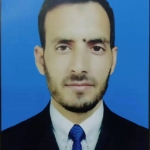
|
|
| |
|
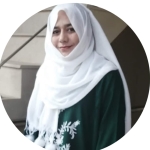
|
|
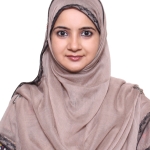
|
|
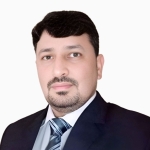
|
|
